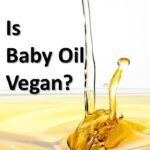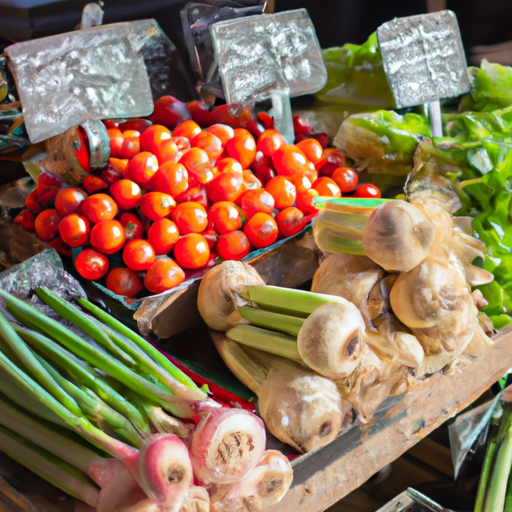Losing hair is something that occurs more in men than women. But it’s a cause for concern for everyone. Other than hereditary reasons, hair loss can be a result of other factors too. Do vegans lose hair? Sure. Some but not all suffer from this issue. In this article, we look at why and what can be done about it.
Can A Vegan Diet Cause Hair Loss?
A vegan diet suffers from various issues compared to an omnivore, meat-eating diet. While it can seem like a sensible idea, there are unfortunately a few downsides to be aware of and address too.
Otherwise, the health-related negatives will likely become a reality.
While vegetables do have many valuable nutrients, they don’t have them all.
Many vital ones are missing in a vegan diet. These nutrients are present in animal meat, but not necessarily in a vegan diet.
There are also issues about how the body is capable of accessing the nutrients that are present in food.
From vegetable or fruit sources, the human body may not obtain what it needs. And this can introduce potential nutritional issues for development and functioning, including hair retention and hair growth.
All vegans must consume supplements to attempt to avoid being nutrient deficient.
However, just taking supplements – even the right ones – doesn’t guarantee that their body will process the supplement and distribute it successfully.
The body is better at extracting nutrients from foods than from pills and making them available. Here we’re talking about bioavailability, which is a fancy way of talking about what portion of a nutrient or medicine can have a positive effect on health.
Do All Vegans Lose Hair?
Some vegans do not get enough nutrients or the required amount for optimal health. Others suffer from a bioavailability issue where even when consuming a nutrient-rich diet optimized for the nutrients that a vegan diet is commonly most deficient in, they may not get to where they’re needed or be accessible to the body as intended.
It is not all the same for vegans.
Some will have a healthy head of hair and never suffer any ill effects.
This doesn’t discount the real possibility of hair loss for vegans. Also, mineral, vitamin, and other deficiencies may need to be prolonged before any side effects become evident. Therefore, it’s not a bad meal plan this month, and losing hair next month, situation.
The good news is that unlike male pattern baldness or female pattern baldness, hair loss caused by a lack of nutritionally rich food is often rectifiable.
Only if the hair follicles have stopped working correctly will this not be the case. This can occur due to genetics or be age-related.
Stress and other factors may also cause hair loss and shouldn’t be ignored either.
Reasons You May Be Losing Hair
There are different nutrients that vegans are susceptible to being low on or not having at all. This is down to their being more present in animal meat and the human body adept at accessing them from this source.
With vegan diets, these foods have the required nutrients to a lesser extent, and it is far less accessible to the body to grab what it needs. This puts vegans at a distinct disadvantage.
Here are some of the potentially deficient nutrients and reasons for hair loss:
Biotin
Biotin aka the B7 vitamin helps the body with its metabolic operations. All humans need it, but other animals often do as well.
It assists the body in creating amino acids, managing carb intake, and fat access too.
B7 is naturally found in bananas, cow’s milk, and eggs.
A lack of or insufficient B7 vitamin can cause mysterious rashes near the eyes, mouth, or nose to develop. The hair may also begin thinning because it interferes with hair growth and retention too.
B12
The B12 vitamin is a bit of a wunderkind. It has a hand in DNA creation, producing red blood cells, and creating both nerve cells and brain cells too.
A binding process lets the B12 vitamin attach to protein sources that we consume in our diet.
Too little B12 and you’ll surely notice it fairly quickly.
Skin that becomes yellow or pale, frequent headaches, tiredness, or inflammation inside the mouth are the most evident. This vitamin is also a little tricky because various health symptoms crop up and are difficult to trace back to their root cause.
Strong levels of B12 are present in cheese, eggs, shellfish and fish, chicken, liver, and beef.
For vegans, a good source for it is fortified cereals.
Zinc
Zinc is a vital mineral that’s present almost everywhere in the human body. Many of the body’s enzymes require it to function.
This metal is needed at small levels but is essential for metabolism management, controlling your immune system to stay healthy, and self-repair.
The foods possessing zinc include poultry, oysters, lobsters, dairy, and red meat.
For vegans, it can also be obtained through eating whole grains, nuts, beans, and cereals for breakfast (fortified is best).
Cysteine
Cysteine is an amino acid. It gets involved in various metabolic functions in the body. While it is classed as “non-essential,” it is a useful protein source for producing collagen and a protein source for hair, skin, and nails.
Poultry, egg yolks, and garlic are good sources.
Vegans can add red bell peppers, broccoli, yeast, oats, and brussels sprouts to get more of it.
Lysine
Lysine on the other hand is flagged as one of the essential amino acids.
This is because the body cannot produce it, so must get it elsewhere. As an amino acid, lysine helps in producing proteins that the body can access.
Cheese, poultry, pork, and red meat are the best sources. Fish including sardines are good too. For vegans, consider spirulina, soybeans (tofu is best), and fenugreek seed.
How To Prevent Hair Loss On a Vegan Diet
Hair loss on a vegan diet can be avoided both by optimizing the foods consumed and taking supplements.
Not all supplements provide sufficient bioavailability to reach the areas that the body needs. Also, some vegans have bodies that don’t work well with supplements and cannot break them down. They won’t know this until it potentially causes a health concern due to multiple nutrient deficiencies.
Therefore, optimizing a vegan diet with an emphasis on good, regular portion sizes of foods with the nutrients that vegans are low on is great.
Taking both of these steps puts a vegan in the best position to avoid any hair loss issues.

![How Do I Start Being A Vegan [Ultimate Guide]](https://awesomeveganblog.com/wp-content/uploads/2022/09/How-Do-I-Start-Being-A-Vegan-Ultimate-Guide-150x150.jpg)

